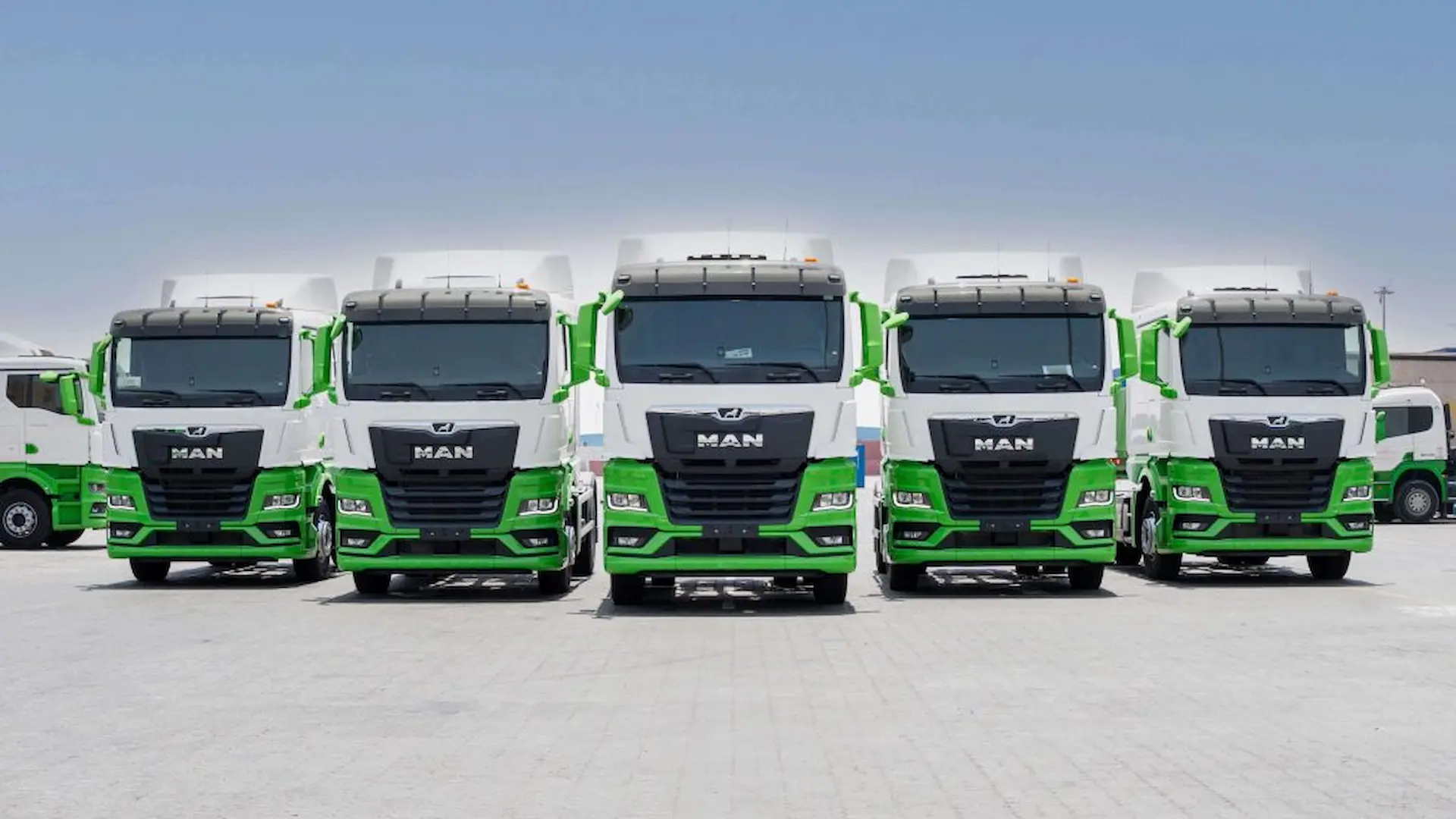In light of increasing environmental challenges and the global push to reduce carbon emissions, sustainability in the road freight sector has become a necessity rather than a choice. Between the United Arab Emirates and the Kingdom of Saudi Arabia, where overland trade is both active and growing, adopting sustainable logistics practices is more crucial than ever.
What Does Sustainability in Road Freight Mean?
Sustainability in road freight refers to implementing strategies and practices that reduce the environmental impact of transportation while maintaining operational efficiency and economic viability.
This includes:
- Using low-emission or electric trucks
- Improving fuel consumption efficiency
- Reducing empty or partial-load return trips
- Implementing smart tracking and route optimization technologies
- Using eco-friendly and recyclable packaging materials

Why Is Sustainability Important in UAE–Saudi Freight Transport?
The land route between the UAE and Saudi Arabia is one of the busiest trade corridors in the Gulf region, with thousands of tons of cargo transported weekly.
This high traffic volume requires smart planning to reduce the carbon footprint and protect the environment—especially as both countries pursue their Vision 2030 goals, where sustainability is a key pillar of national development.
How Can Logistics Companies Promote Sustainable Practices?
Leading logistics providers like Al Saif Al Arabi Trucking are already taking steps toward a more sustainable freight industry by:
- Modernizing their truck fleets with more fuel-efficient and environmentally friendly engines
- Optimizing route planning to avoid underloaded or empty return trips
- Training drivers in fuel-efficient (eco) driving techniques
- Utilizing advanced fleet management systems to monitor and reduce fuel consumption
- Promoting the use of recyclable and reusable packaging solutions

Challenges to Achieving Sustainability in Road Freight
Despite progress, several challenges remain:
- High costs of acquiring electric or low-emission trucks
- Limited electric charging infrastructure on long-haul routes
- Lack of unified regional standards for sustainable transport
However, these challenges are expected to decrease as technology improves and government support increases.
The Future of Sustainable Freight in the Gulf
With growing environmental awareness and active government support for clean energy projects, the future of road freight in the GCC is shifting toward:
- Adoption of electric and hybrid trucks
- AI-based route and load optimization
- Integrated multimodal logistics solutions combining road, rail, and sea freight to reduce road pressure
Sustainability in road freight between the UAE and Saudi Arabia is not just an environmental responsibility—it is also a competitive advantage that improves operational efficiency and enhances customer satisfaction.
The companies investing in green logistics today will be tomorrow’s leaders in an economy that is rapidly moving toward a cleaner and more efficient future.

